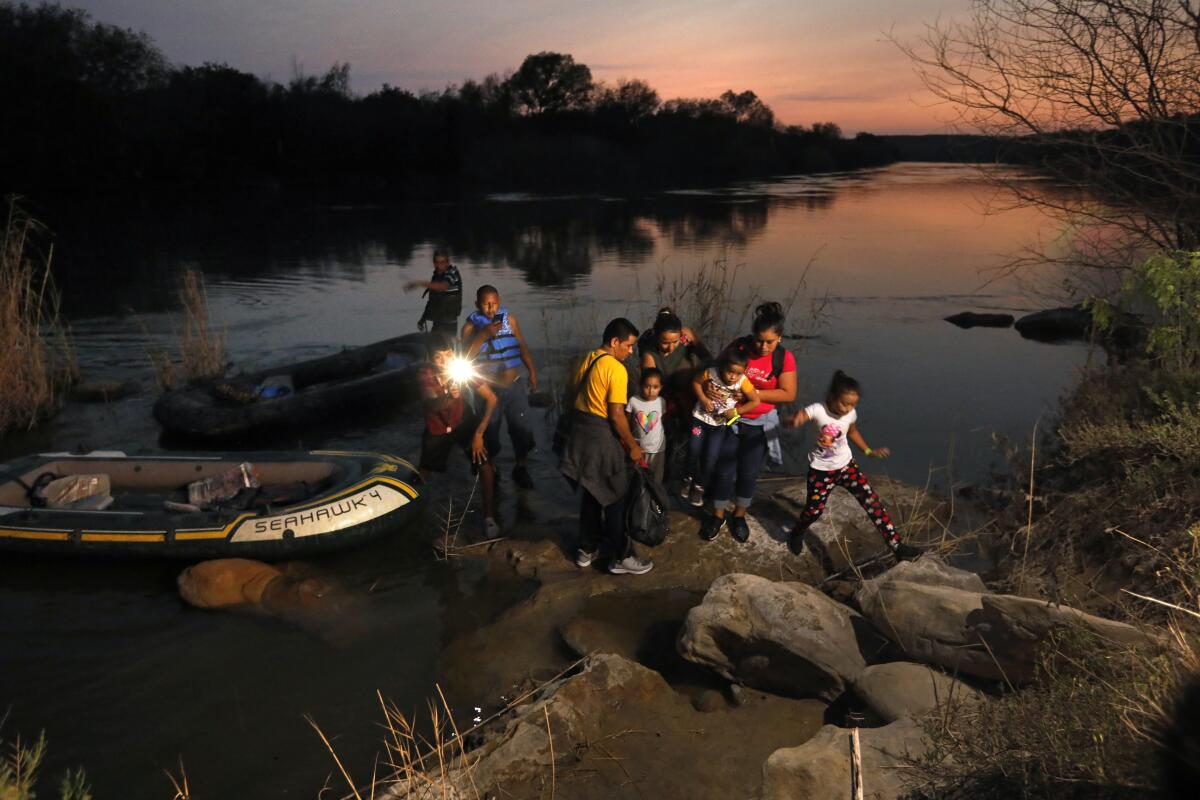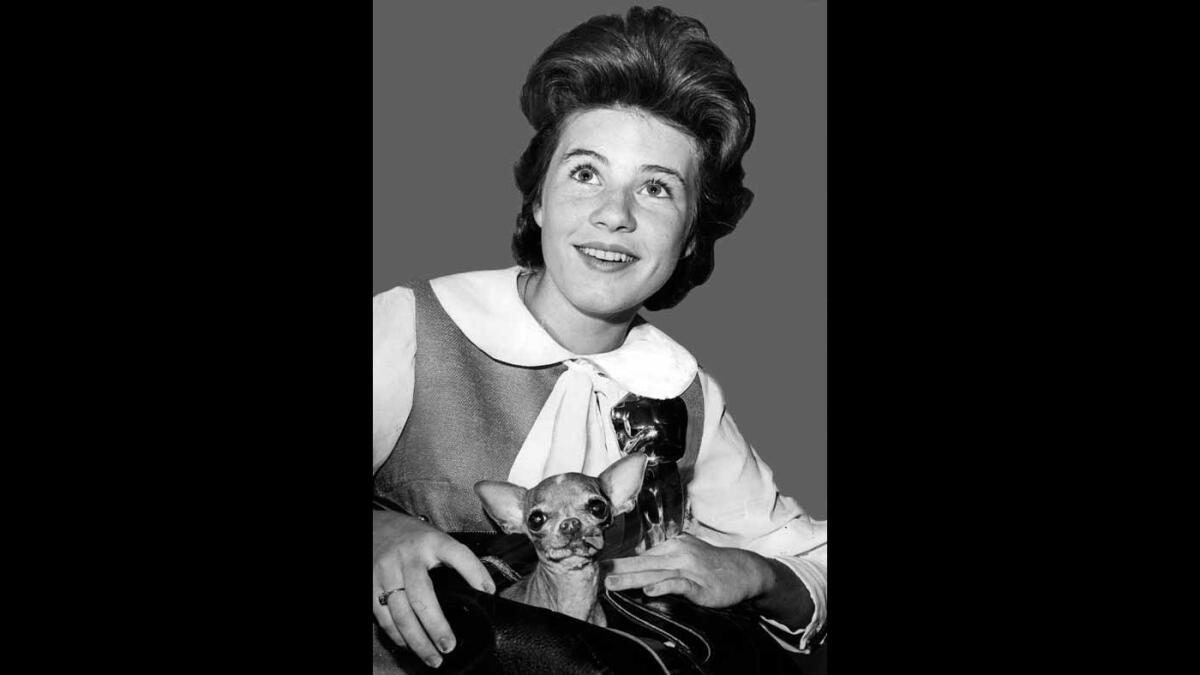Today’s Headlines: The vaccine countdown is on

As eligibility for the COVID-19 vaccine in California expands this week, the rush begins for people between the ages of 50 and 64.
TOP STORIES
The Vaccine Countdown Is On
California on Thursday announced that all adults will become eligible for a COVID-19 vaccine beginning April 15, spurring an immediate flurry of phone calls, appointment requests and people trying to secure their spots in line.
But the two-week window before the free-for-all begins marks a critical point in the state’s vaccine rollout — particularly for people between the ages of 50 and 64, who become eligible April 1. A patchwork of rules, uncertainty about supply levels and questions about capacity and accessibility remain, even as more people ready themselves for their turn.
Start your day right
Sign up for Essential California for the L.A. Times biggest news, features and recommendations in your inbox six days a week.
You may occasionally receive promotional content from the Los Angeles Times.
The California Department of Finance, which monitors population data, projects that there are nearly 1.9 million people in L.A. County between the ages of 50 and 64, and 7.2 million in the state. Currently, only about 23% of Californians in that age group have received at least one dose of a vaccine, according to the state, compared with 37% of people ages 18 to 49, likely due to occupation or health status.
It’s not clear exactly how many people between the ages of 50 and 64 have yet to be vaccinated in L.A. County. Some would have already become eligible either through their work or because they have qualifying health conditions.
More Top Coronavirus Headlines
— Los Angeles County public health authorities are urging people to remain vigilant in observing coronavirus protocols when traveling or socializing during the spring holidays, cautioning that other states are seeing a rise in cases.
— California theme parks that reopen this spring can operate some indoor rides but must queue up visitors outdoors and require that all parkgoers and workers wear face coverings.
— Feeling unsettled and anxious? Yes, COVID-19 vaccine envy is real.
For more, sign up for Coronavirus Today, a special edition of The Times’ Health and Science newsletter.
The Things They Left Behind
Mexican residency permits. Sweatshirts. Toddler shoes. Lip balm. Jackets snagged on trees. These are some of the items left behind by migrants along the Rio Grande.
But what stands out the most are the plastic wristbands — a rainbow of yellow, gray, red and blue spreading through the brush — some cinched to fit the smallest arms. Many are printed with a single word: entregas. Deliveries.
Mexican traffickers have been ferrying families and unaccompanied children, many from Central America, across the river on rafts and into Texas’ Rio Grande Valley this month. They affix the wristbands to migrants as proof of payment. Those without them say they’ve been kidnapped by smugglers and held until relatives or friends agreed to pay their fee, at least $6,000. (Note: Times subscribers get early access to this article.)

A Tale of Two Reckonings
For months, Manhattan Beach has wrestled with an uncomfortable truth: The city once seized a Black family’s oceanfront resort and ran a community of Black beachgoers out of town.
A task force was formed. An apology drafted. But residents of the town, which is 78% white, according to census data, have pushed back on the notion that they must atone for injustices committed almost a century ago.
“We do not want to ignore the past, but we do not want it embroidered in a scarlet R upon our chest,” said Mayor Suzanne Hadley, in response to numerous emails and hours of testimony from people worried that the renewed controversy over Bruce’s Beach has marked the city as racist.
But as the city’s inaction captured more headlines and ignited greater calls for justice, Los Angeles County Supervisor Janice Hahn stepped in and did what she said felt obvious: apologizing to the Bruce family and agreeing that the land should be returned.
The CSU Report Card
After a tumultuous year online and off-campus, students attending the California State University have persevered through the pandemic by largely maintaining their grades and course loads — although some troubling numbers point to the struggles of Latino and Black students, a Times survey has found.
Data provided to The Times by 18 of the 23 campuses in the nation’s largest four-year higher education system show that, on average, students’ unit loads and grades did not drop substantially in fall 2020 — the first full semester of online learning — compared with fall 2019. In fact, average GPA increased across the board, reflecting flexible grading and expanded withdrawal policies.
But there were setbacks, too. Ten campuses reported year-over-year increases in withdrawals from classes, and 11 saw upticks in the percentage of students who received a grade of D, F or W. The share of freshmen who continued from fall to spring term, an important element to their long-term success, dropped at 13 universities. And by some indications, Black, Latino and first-generation students fared the worst.
OUR MUST-READS FROM THE WEEKEND
— Uprooting a homeless camp in Echo Park drew protests, condemnation from the American Civil Liberties Union and even criticism from some within City Hall. But in some corners of the city, residents were envious.
— Black voters showed they matter in Georgia. Here’s how activists are trying to keep it that way.
— Oakland will launch a guaranteed income program, but think of it as a test case for reparations, columnist Erika D. Smith writes.
— How can you get a COVID vaccine in California? Here are a bunch of things you can do.
FROM THE ARCHIVES
Patty Duke came to fame as a teenager, combining a talent for dramatic acting with a sunny, all-American image that enchanted TV and film audiences. At age 16, she won an Oscar for her portrayal of Helen Keller in “The Miracle Worker.” And she starred in the bouncy 1960s TV sitcom “The Patty Duke Show.”
What viewers didn’t know was that Duke’s childhood was marred by nightmarish abuse and exploitation. Overcoming her troubles in her adult years, Duke broke a Hollywood taboo by speaking publicly about her mental health struggles. She became an outspoken advocate for mental health causes.
Duke died on this date in 2016 at age 69 at a hospital in Coeur D’Alene, Idaho.
“I always thought I would see Anna again,” remembered then-Times film critic Kenneth Turan, who was the co-writer of “Call Me Anna,” Duke’s 1987 autobiography. “We hadn’t been in touch for years, but our collaboration had been so intense that not connecting again was inconceivable. Now it’s never going to happen.”

CALIFORNIA
— Hundreds of demonstrators gathered in Koreatown for a unity rally and march down Olympic Boulevard to demand an end to the surge in anti-Asian racism and violence, including the Atlanta-area killings earlier this month, that have stoked fear and outrage in the community.
— Seeking help with her 12-year-old’s video schooling in Palmdale, a mother says she endured a teacher’s racist rant.
— State attorney general-designee Rob Bonta is already gearing up for the 2022 election.
— Sen. Dianne Feinstein has become the longest-serving senator in California history, surpassing a record set in the 1940s.
Support our journalism
Subscribe to the Los Angeles Times.
NATION-WORLD
— Engineers “partially refloated” the Ever Given, the colossal container ship that remains wedged across the Suez Canal, a canal services firm said. But it did not provide details about when the vessel would be set free.
— President Biden will lay out the first part of his multitrillion-dollar economic recovery package this week, focusing on rebuilding roads, bridges and other infrastructure, followed by a separate plan later in April addressing child care and healthcare.
— Two attackers believed to be members of a militant network that pledged allegiance to the Islamic State group blew themselves up outside a packed Roman Catholic cathedral during a Palm Sunday Mass on Indonesia’s Sulawesi island, wounding at least 20 people, police said.
— The mass shootings in Colorado and Georgia are giving new urgency to state efforts to enact gun restrictions, even while showing how hard it can be to prevent a tragedy.
HOLLYWOOD AND THE ARTS
— The new HBO docuseries “Q: Into the Storm” attempts to answer one of the most urgent questions of our time: Who controls QAnon?
— Is the box office finally coming back? “Godzilla vs. Kong” set a global pandemic record this weekend.
— Woody Allen has denied Dylan Farrow’s abuse allegations, again, in a CBS interview that was recorded in July.
— How Eric Andre brought his raucous prank comedy to Netflix’s “Bad Trip.”
BUSINESS
— Olympia Medical Center, which has served the mid-Wilshire area since 1947, is slated to close Wednesday. The community sees it as a betrayal of trust, but public policy experts said it’s business as usual in the world of healthcare.
— Some artists earned serious profits during the pandemic making and selling face masks, artisanal foods and more.
SPORTS
— March Madness: USC advanced to the Elite 8 for the first time since 2001 with an 82-68 win over Oregon, while UCLA defeated Alabama in overtime to reach the same group for the first time since 2008.
Free online games
Get our free daily crossword puzzle, sudoku, word search and arcade games in our new game center at latimes.com/games.
OPINION
— “My Hong Kong is now a paradise lost,” writes Kent Wong, who escaped from China by swimming to the city decades ago.
— The U.S. invested in the war on terrorism at the cost of public health, writes Elisabeth Rosenthal, editor in chief of KHN (Kaiser Health News).
WHAT OUR EDITORS ARE READING
— Novelist Sara Gruen spent years trying to prove a man’s innocence. Now she’s “absolutely broke” and “seriously ill,” and her next book is “years past deadline.” (The Marshall Project)
— The restoration of the Air Force Academy Chapel in Colorado is the most complex modernist preservation project in the U.S. (The Architect’s Newspaper)
ONLY IN CALIFORNIA
Easter-morning worshippers have been hiking to the top of Riverside’s Mt. Rubidoux since 1909, but just like last year, the services this time will be livestreamed. A group of local pastors will celebrate April 4 at the 1,337-foot-tall granite mountain, but attendees are encouraged to watch online rather than show up in person. Before 2020, the service had reportedly been interrupted just twice: during World War II and in the 1920s during an outbreak of hoof-and-mouth disease.
Comments or ideas? Email us at headlines@latimes.com.
Sign up for Essential California
The most important California stories and recommendations in your inbox every morning.
You may occasionally receive promotional content from the Los Angeles Times.



